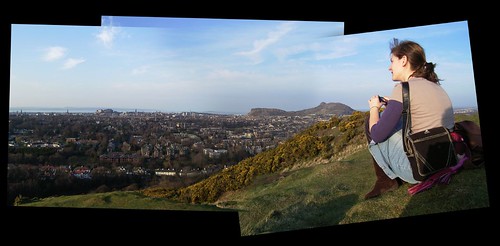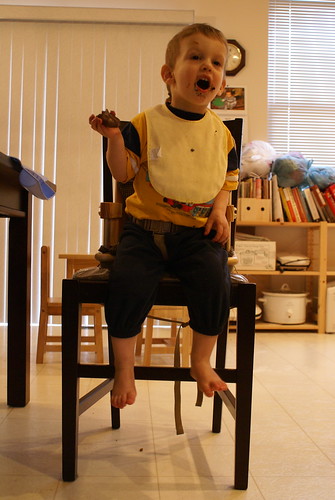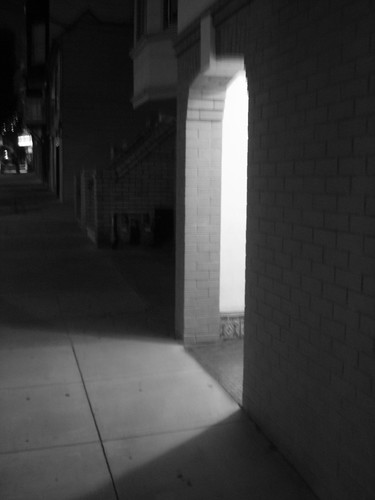 2nd Sunday in Lent (A)
2nd Sunday in Lent (A)
Zooming In and OutReadings:
Genesis 12:1-4a; Psalm 33:4-5, 18-19, 20, 22; 2 Timothy 1:8b-10; Matthew 17:1-9Many people own cameras these days. Some cameras can be as simple as the ones found on many cellphones, where you only have to point and shoot. Others can be very sophisticated with many different attachments to adjust and buttons to press. I’m not a photographer, but if there’s one function on a camera that I like best, it’s the one that allows you to zoom in and out.
I find it fascinating that you can change the view so easily. At one moment, you can enlarge the object you're photographing so that you can see all the details. Then, at the next moment, you can shrink it so that you can also see the background, the big picture. And this function is not just for fun. It serves an important purpose. Let’s say, for example, that you’re taking the picture of a child. Zooming in allows you to focus on the child’s face in detail. It gives you a close-up view of the warmth of the child’s smile, the white of the teeth, the twinkle in the eyes. But it is only in zooming out that you also begin to appreciate the reason for the child’s joy. Now, although you can’t see the child in detail, you can see its surroundings, the birthday cake, for example, topped with lit candles, the other happy children with party hats on their heads, the presents in the corner waiting to be opened…
If you really want to understand something, not just to take its picture, zooming in and out is the way to go.
And doesn’t the same hold true for everything else in life? If we wish, for example, to understand the meaning of something that has happened to us, not just what has happened and why, but also how best we are to respond to it, don’t we also need to learn how to zoom in and out? We need to zoom in, to look at things closely so that we can study the details. But we also need to zoom out to see the big picture, so that we can better appreciate why something might be happening, to see it in its wider context.
Could this have something to do with what is happening to the disciples in our readings today? For some time now, they have been happy to follow Jesus. They have enjoyed his popularity, looked on proudly as the crowds flocked to him. They have witnessed his great deeds of power, seen how he healed the sick and cast out demons. They have listened to his profound words, especially those spoken in the
Sermon on the Mount. They even have some sense that he is the One chosen by God to save his people.
But, all this while, something else has also been happening. Jesus has reached a turning point in his ministry, because, for all his popularity, he has also been making powerful enemies. And this opposition has been growing in strength. Soon Jesus will be arrested and tortured and condemned to a cruel death on a cross. What are the disciples to do now? How are they to understand all that is happening? How are they to respond? In spite of the danger, will they continue to follow Jesus? Will they give up?
They didn’t have cameras in Jesus’ day, much less zoom lenses. So, in order to help the disciples to zoom out and zoom in on their situation, Jesus takes three of them up a
high mountain. Anyone who has ever climbed a mountain will know why. Not only does the mountaintop allow one to zoom out and to see the big picture, but the very process of climbing often also enables one to zoom in on oneself, to see in detail what is going on within. And isn’t this what happens to the disciples?
Just when they are faced with the terrifying prospect of Jesus’ approaching Passion and Death, the camera zooms out to give them a wider view of who Jesus really is.
He was transfigured before them; his face shone like the sun and his clothes became white as light… This worker of miracles and preacher of wisdom, who was raised in Nazareth and ministered in Galilee, is now revealed before their eyes as the beloved Son of the Eternal God who lives in unapproachable light. He is the fulfillment of everything written in the Law and the Prophets. Quite understandably, faced with this remarkable sight, Peter immediately offers to make arrangements for them to remain on the mountain.
I will make three tents here…, he says.
But that is not to be. For the camera zooms back in to give them a glimpse of what this means for them. Having seen the awesome glory of Jesus’ true identity, they hear a Voice telling them to
listen to him. To better understand what is implied in these three little words, we need to zoom back out for a moment. We need to step back from our focus on today’s gospel, to consider also the first and second readings. For here we find an indication of what is being asked of the disciples. Like Abram, they are being invited
to go forth from the land of your kinsfolk… to a land that I will show you… Up till now they had been expecting a glorious political Messiah to free them from the oppression of Roman rule. Instead, they are now being asked to descend the Mountain of Transfiguration and to accompany the Suffering Servant to Mount Calvary. In the words of Paul to Timothy, they are being invited to
bear your share of hardship for the gospel with the strength that comes from God…Is it any wonder, then, that they fall to the ground in fear? We are told that the command to follow Jesus comes from a
bright cloud. This is, of course, the presence of God. But, interestingly enough, we are also told that
bright though this cloud may be, it
casts a shadow over the disciples, just as their Master’s impending Passion and Death will soon darken their lives.
But a remedy for their fear is found in the comforting approach and the tender touch of the Lord.
Rise, and do not be afraid… Here, then, is the
strength that comes from God about which Paul writes. It lies in connecting the two views that one gets from zooming out and in. For the
Suffering Servant is also the
glorious Messiah. To follow the One in his pain is also to share in the joy of the Other. Isn’t this the grace that is offered on the Mount of Transfiguration? Isn’t this the great blessing that is being offered the disciples: that they might be given the strength to follow Christ in his sufferings so as to share in his glory? And in receiving this blessing, like Abram, won't they then become blessings for others?
And what about us, the present-day disciples of Christ? How do we respond to the various things that happen in our lives: the prospect of a serious illness, for example, or of a death in the family, or a new job, or a promotion? How do we respond to the things that happen to us as a community or as a nation? How do we evaluate, for example, the recent hearings and investigations and rallies that have been filling the local news?
Faced with all the various opportunities and challenges in our lives, how might we follow Jesus up a
high mountain in order to better appreciate what is being asked of us? How might we learn to study things in detail while also considering the big picture? How might we obtain the strength we need, especially during this great season of Lent, to
bear our share of hardship for the gospel so as to become a blessing to others?
Sisters and brothers, how are we being taught to
zoom in and out today?



















